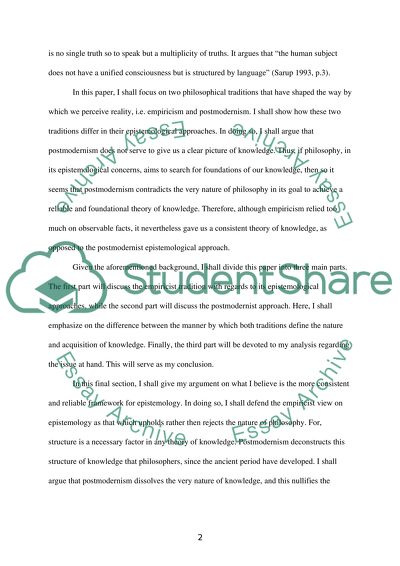Cite this document
(“From Empiricism to Postmodernism Essay Example | Topics and Well Written Essays - 2250 words”, n.d.)
Retrieved from https://studentshare.org/culture/1414710-from-empiricism-to-postmodernism
Retrieved from https://studentshare.org/culture/1414710-from-empiricism-to-postmodernism
(From Empiricism to Postmodernism Essay Example | Topics and Well Written Essays - 2250 Words)
https://studentshare.org/culture/1414710-from-empiricism-to-postmodernism.
https://studentshare.org/culture/1414710-from-empiricism-to-postmodernism.
“From Empiricism to Postmodernism Essay Example | Topics and Well Written Essays - 2250 Words”, n.d. https://studentshare.org/culture/1414710-from-empiricism-to-postmodernism.


